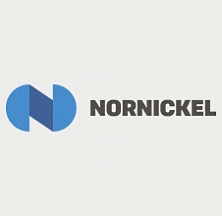
The Group’s 2019 Sustainability Report is the sixteenth public, non-financial report to be published by Nornickel. It goes into detail on how the Company is contributing to the six UN 2030 Sustainable Development Goals that have been identified as the most relevant and prioritised.
In 2019, Nornickel reaffirmed its leadership in the mining and metals industry on health and safety performance. Work-related injury rates remained below average among its global mining peers, and below the Company’s own average for the last five years. Over the last six years, the assessment of Company’s safety culture level has improved from 1.4 to 2.77 points on the Bradley Curve (out of the maximum of 4 according to Bradley Curve).
For the first time ever, the 2019 SD report includes the Climate Change Risk Assessment. Nornickel’s metals are widely used globally in various technical solutions that mitigate the negative climate impact of key emission sources, while the Company itself takes pride in having one of the industry’s lowest volumes of greenhouse gas emissions. Renewable energy’s share of the Group’s total power consumption amounted to 44.5% in 2019 (up 0.9 p.p. y-o-y).
In 2019, the Company recorded significant reduction of overall pollution. Pollutants in sewage water were reduced by 25%. The share of water recycled and reused stood at 87.2%.
The Company also updated its Sulphur Programme, a comprehensive environmental initiative designed to drastically reduce SO2 emissions from the Company’s operations. The updated programme aims to reduce SO2 emissions on the Kola site by 85% by 2021, while the ambition for the Polar Division is to cut SO2 emissions by 90% by 2025, and further to 95% in the future. In order to achieve these ambitious targets, Nornickel decided to fully shut down smelting operations in the town of Nickel in Kola Peninsula, bringing down SO2 emissions in the cross-border area with Norway to zero.
Earlier this year, the Company issued a special report at the request of the Church of England Pensions Board on the status of tailings and measures to control their condition.
Nornickel has also maintained its industry leading employee renumeration and benefits package. The Company’s average salary has risen by 6.5% to above RUB 118,000 per month, remaining among the highest industry-wide in Russia.
In 2019, the Company reiterated its commitment to providing support for local communities. Overall expenditures on charitable and social infrastructure development programmes amounted to RUB 18 bn.
The corporate governance of Nornickel has been also improved. In 2019, the number of independent directors stood at 7 out of 13, which exceeded the required minimum, and meant that for the first time in the Company’s history, the majority of directors on the Board were independent.
International experts and leading independent rating agencies have recognised the Company’s efforts to improve its ESG performance. ISS raised Nornickel’s Social rating to 2 points (on a-10 points scale, where 1 is a low risk), and affirmed the Company’s Environmental and Corporate Governance ratings at 4. The inclusion of Nornickel’s shares in the FTSE4Good Emerging Index was confirmed, with a score of 3.0 out of 5. Robeco SAM, a sustainable investment specialty firm, raised Nornickel’s ESG to 37 points (up on 2018’s 27), while the Company’s score in Sustainalytics’ ESG rating is 67 (out of 100). Furthermore, Nornickel was named Russia’s Best Employer in 2019 by Forbes in their Global 2,000: The World’s Best Employers list, ranking 36th among the top 2,000 employers globally.
Dowload full version in pdf
Vladimir Potanin, Nornickel’s President, commented as follows:
«Our consistent delivery on Nornickel’s strategy, alongside its unique mineral resource base, help us to adapt to changing market environment and stay on course, even amidst very turbulent times. The Company continues to be a leader among the global metal producers, while upholding the highest standards of sustainable development. Our environmental projects are wide-reaching, and the launch of the updated Sulphur Programme 2.0 allows for a staged rollout of the industry’s best SO2 capturing practices. I am confident that the Company’s management will continue to strive to secure our stability and efficiency, and to guarantee that we meet our commitments to our employees, shareholders and other stakeholders.»
In 2019, Nornickel reaffirmed its leadership in the mining and metals industry on health and safety performance. Work-related injury rates remained below average among its global mining peers, and below the Company’s own average for the last five years. Over the last six years, the assessment of Company’s safety culture level has improved from 1.4 to 2.77 points on the Bradley Curve (out of the maximum of 4 according to Bradley Curve).
For the first time ever, the 2019 SD report includes the Climate Change Risk Assessment. Nornickel’s metals are widely used globally in various technical solutions that mitigate the negative climate impact of key emission sources, while the Company itself takes pride in having one of the industry’s lowest volumes of greenhouse gas emissions. Renewable energy’s share of the Group’s total power consumption amounted to 44.5% in 2019 (up 0.9 p.p. y-o-y).
In 2019, the Company recorded significant reduction of overall pollution. Pollutants in sewage water were reduced by 25%. The share of water recycled and reused stood at 87.2%.
The Company also updated its Sulphur Programme, a comprehensive environmental initiative designed to drastically reduce SO2 emissions from the Company’s operations. The updated programme aims to reduce SO2 emissions on the Kola site by 85% by 2021, while the ambition for the Polar Division is to cut SO2 emissions by 90% by 2025, and further to 95% in the future. In order to achieve these ambitious targets, Nornickel decided to fully shut down smelting operations in the town of Nickel in Kola Peninsula, bringing down SO2 emissions in the cross-border area with Norway to zero.
Earlier this year, the Company issued a special report at the request of the Church of England Pensions Board on the status of tailings and measures to control their condition.
Nornickel has also maintained its industry leading employee renumeration and benefits package. The Company’s average salary has risen by 6.5% to above RUB 118,000 per month, remaining among the highest industry-wide in Russia.
In 2019, the Company reiterated its commitment to providing support for local communities. Overall expenditures on charitable and social infrastructure development programmes amounted to RUB 18 bn.
The corporate governance of Nornickel has been also improved. In 2019, the number of independent directors stood at 7 out of 13, which exceeded the required minimum, and meant that for the first time in the Company’s history, the majority of directors on the Board were independent.
International experts and leading independent rating agencies have recognised the Company’s efforts to improve its ESG performance. ISS raised Nornickel’s Social rating to 2 points (on a-10 points scale, where 1 is a low risk), and affirmed the Company’s Environmental and Corporate Governance ratings at 4. The inclusion of Nornickel’s shares in the FTSE4Good Emerging Index was confirmed, with a score of 3.0 out of 5. Robeco SAM, a sustainable investment specialty firm, raised Nornickel’s ESG to 37 points (up on 2018’s 27), while the Company’s score in Sustainalytics’ ESG rating is 67 (out of 100). Furthermore, Nornickel was named Russia’s Best Employer in 2019 by Forbes in their Global 2,000: The World’s Best Employers list, ranking 36th among the top 2,000 employers globally.
Dowload full version in pdf
